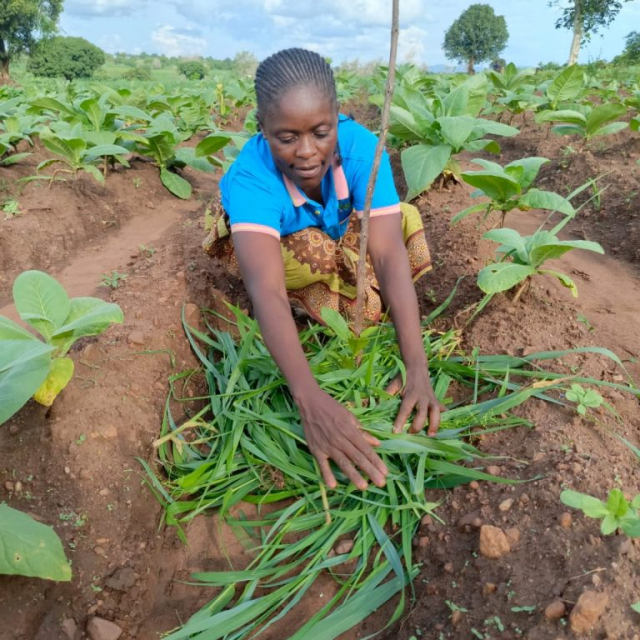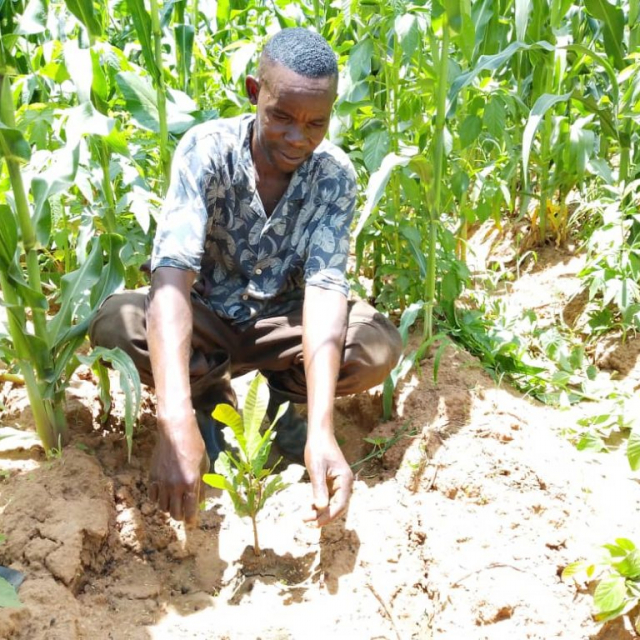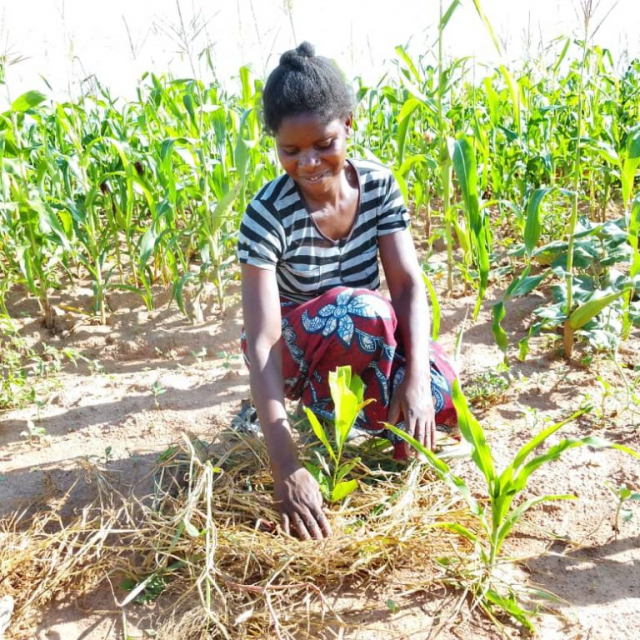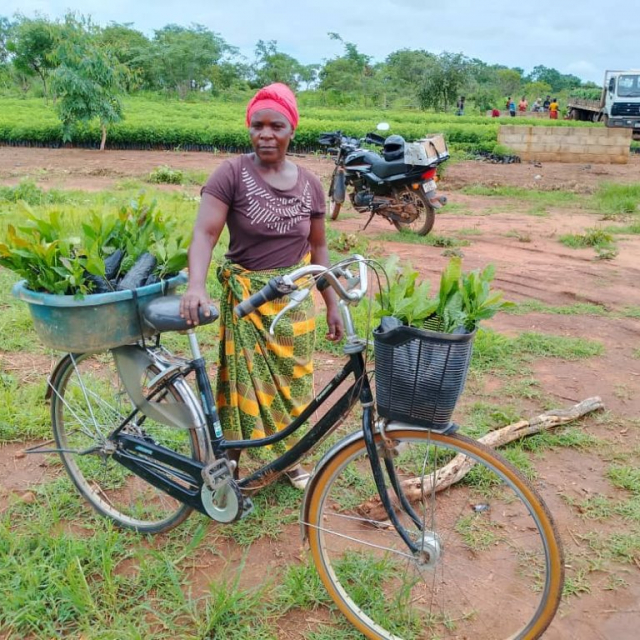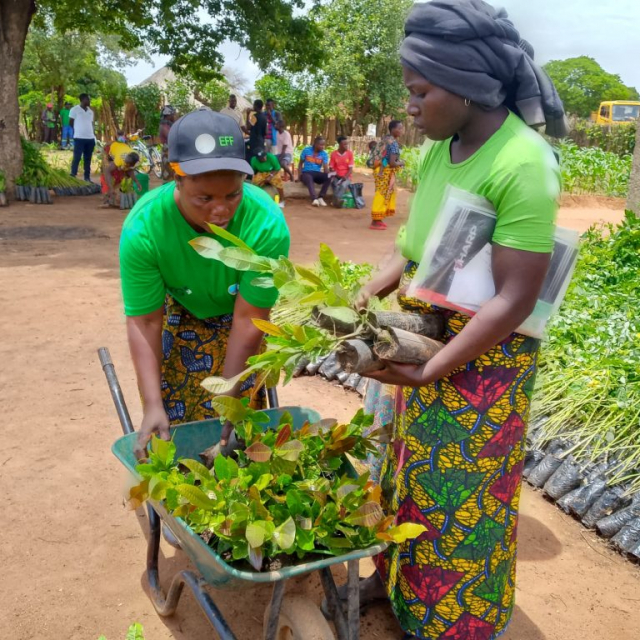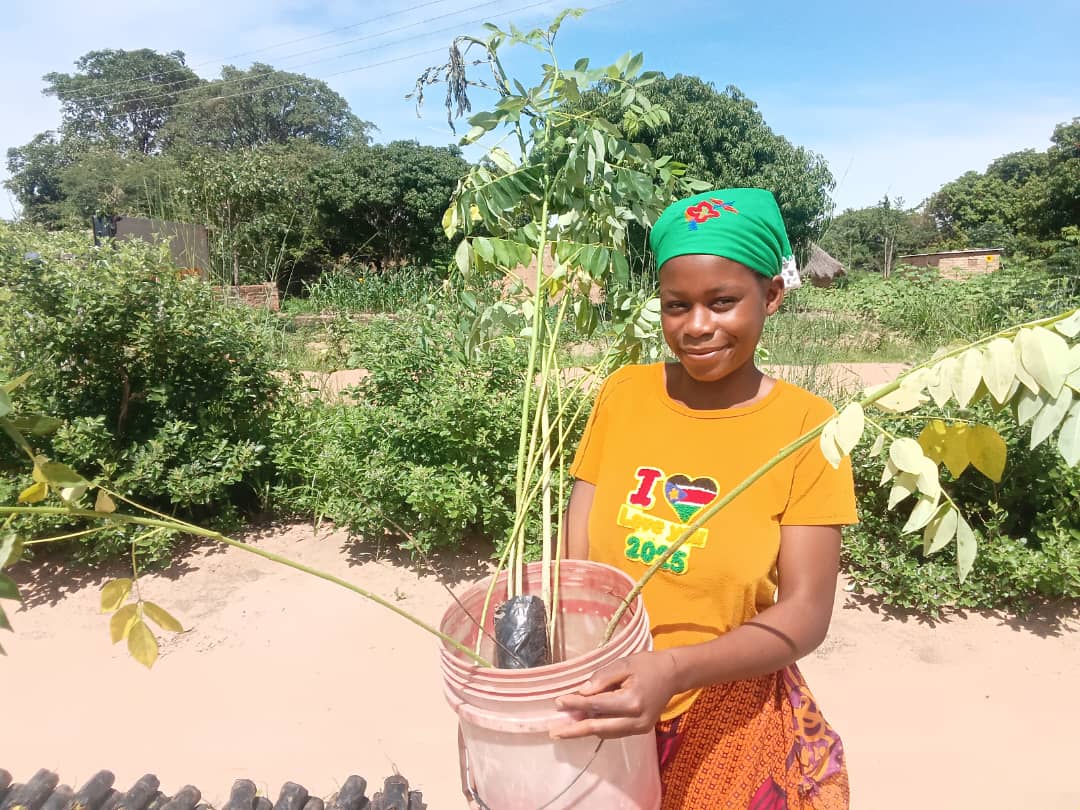
DEVELOPPP PROJECT
GOAL
To improve the livelihoods of 10,000 smallholder farmers across 8 districts in the Eastern and Central Provinces of Zambia by promoting sustainable agroforestry practices.
LOCATION
Zambia
DURATION-
2024
-
2025
FARMERS
10,000
VALUE CHAINS
Cashew, Moringa, Gliricidia
PARTNERS
ETC Group (ETG), DEG -Deutsche Investitions- und Entwicklungsgesellschaft mbH, Parrogate Group Limited (PGL)
FUNDING
USD
Strengthening climate resilience and smallholder livelihoods through agroforestry in Zambia
To address climate change and improve the livelihoods of smallholder farmers, Empowering Farmers Foundation has partnered with ETG Climate Solutions and Parrogate Ginneries Limited (PGL) to implement an agroforestry component under the DeveloPPP project. This initiative, funded by DEG – Deutsche Investitions- und Entwicklungsgesellschaft mbH, sponsors the planting of 553,333 gliricidia seedlings, 320,000 cashew seedlings, and 50,000 moringa seedlings in eight districts of Zambia: seven in Eastern Province which include Lundazi, Chipangali, Chipata, Kasenengwa, Sinda, Katete, Petauke, and Kapiri Mposhi District in Central Province. These trees are vital for sustainable land use, providing long-term benefits such as increased soil fertility, improved water retention, and enhanced carbon sequestration.
Key project activities, achievements and impact to date
• Successfully established 15 community-based cashew nurseries in Eastern Province and one in Central Province, each with an average capacity of 60,000 seedlings each.
• These nurseries have created employment opportunities for 45 youth, fostering economic empowerment in local communities.
• Recruited and trained 10,700 farmers on the benefits of agroforestry, land preparation, and tree planting, preparing them to plant 923,333 cashew, gliricidia, and moringa seedlings.
• Seedling distribution was done from late December 2024 to March 2025, strategically aligning with the onset of rains to enhance tree survival rates.
• Phase One of the project concludes on May 31, 2025.

